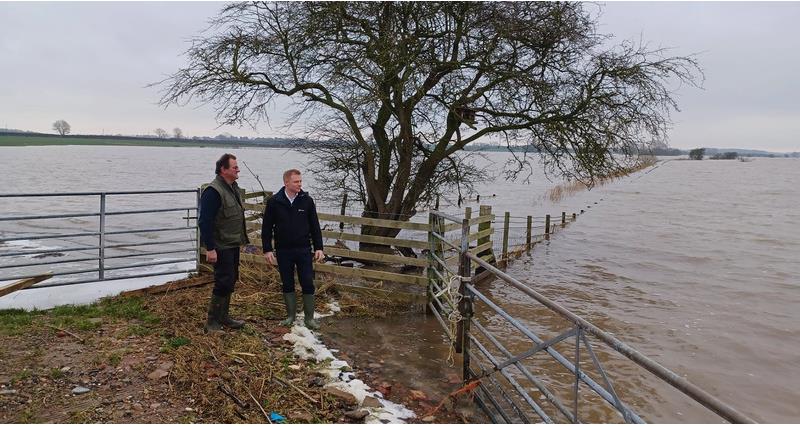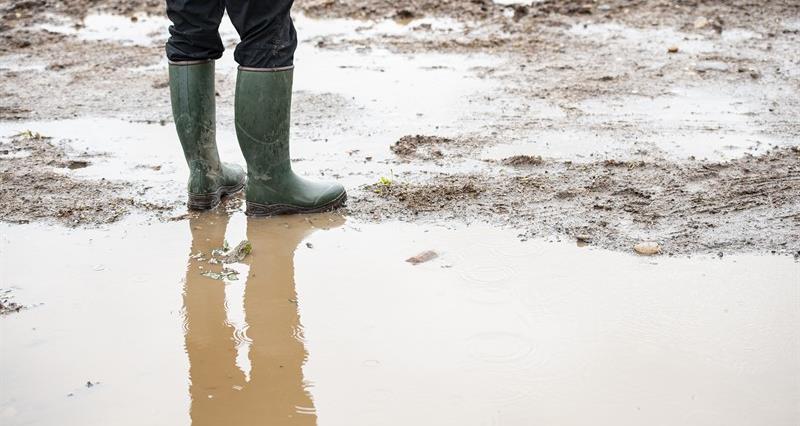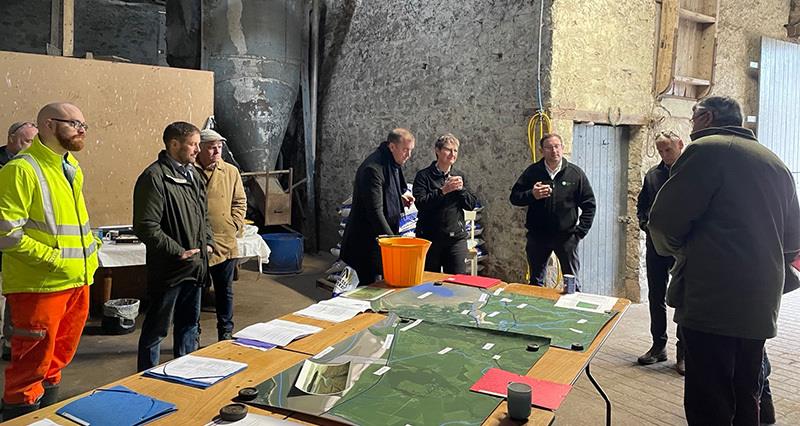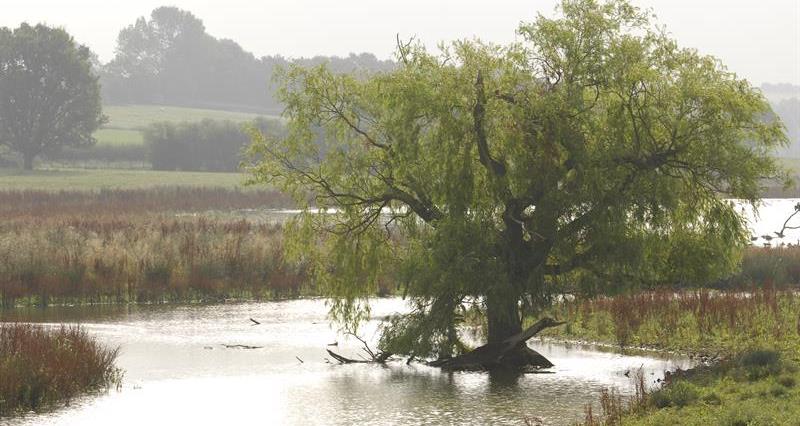Farmers met with the Minister to look at the devastating impact of winter storms on farm businesses and food producing land near Driffield.
NFU member and arable and livestock farmer Nigel Watson hosted the visit at Coney Garth Hill Farm in North Frodingham and was joined by fellow farmers Tom Warkup and Mike Artley.
The visit gave Mr Moore the opportunity to see first-hand the impact of the 10 storms experienced in the past four months on local people and businesses.
Storms are worst in recent memory
Flooding has been an issue near the River Hull for decades and hundreds of acres of farmland remain underwater with some farmers surrounded on all sides by the deluge with their homes and businesses cut off from dry land.
Previous studies have been done to help identify what can be done to address flooding in the area following collaboration between East Riding Council, Hull City Council, the Internal Drainage Board, the Environment Agency, the NFU and water companies.
The current funding formula takes into consideration the benefits works will have on reducing flood risk to people, property and infrastructure.
“Visiting farmers in Yorkshire, I saw first-hand the challenges they have faced, and it was good to hear more about solutions for preventing agricultural flooding.”
Parliamentary Under-Secretary of State (Minister for Water and Rural Growth) Robbie Moore
This means that many Middle and Upper River Hull projects, where the main benefits are to land or isolated rural communities with limited numbers of properties, will generally attract less or no central government funding meaning they require significant partnership funding.
Farmers have said the storms have been the worst in recent memory in the area with many crops still underwater and they are calling for help.
Minister ‘keen to listen’
Flooding Minister Robbie Moore said: “Heavy rainfall this winter has affected communities across the North of England, with the Ouse catchment and Yorkshire seeing one of the wettest Decembers since records started over 150 years ago.
“Visiting farmers in Yorkshire, I saw first-hand the challenges they have faced, and it was good to hear more about solutions for preventing agricultural flooding. We know there is more to do to ensure the region is more resilient to these events and that’s why since 2015 the Government has invested £529 million flood defences in Yorkshire and the Humber – more than any other region.”
James Copeland, NFU environment adviser who was at the meeting, said: “I thought it was great to get Mr Moore out in East Yorkshire so he could see for himself the devastating impact flooding is having on farmers and growers’ businesses and what this means for food production, nature and the long-term viability of farming businesses.
“The number of family farms that have been affected since October was brought to light during this visit and it could be months before the flood water recedes and farming can recommence. The Minister was keen to listen to what the farmers had to say and the steps they are taking themselves to find solutions.
“He was keen to see what practical actions could be undertaken.”
Following the visit Nigel said that he thought it was good to get the Minister out on farm and “show him the state of play, you can’t beat doing that”.
“The one thing you can never explain and actually don’t quite realise is the impact constant flooding has on your health. Being surrounded by that amount of water for such a long time is taking its toll on us mentally now,” Nigel added.
“The cattle are well out of the water as they are housed but herd health remains a top priority.
“We’ve lost about 20 acres of wheat and the rest is grassland that we’re hoping will recover, but we aren’t going to have much spring grass now and we’ll probably have to do re-seeding as well. We will not know the extent of it until the water has gone fully.
“I’m hoping, especially when we get some more hard facts from a more recent survey, that Mr Moore will nudge the Environment Agency in the right direction.
“I’ve every confidence that he’ll do that because he does understand our situation and I think we’ve just got to provide him with some hard facts.”



